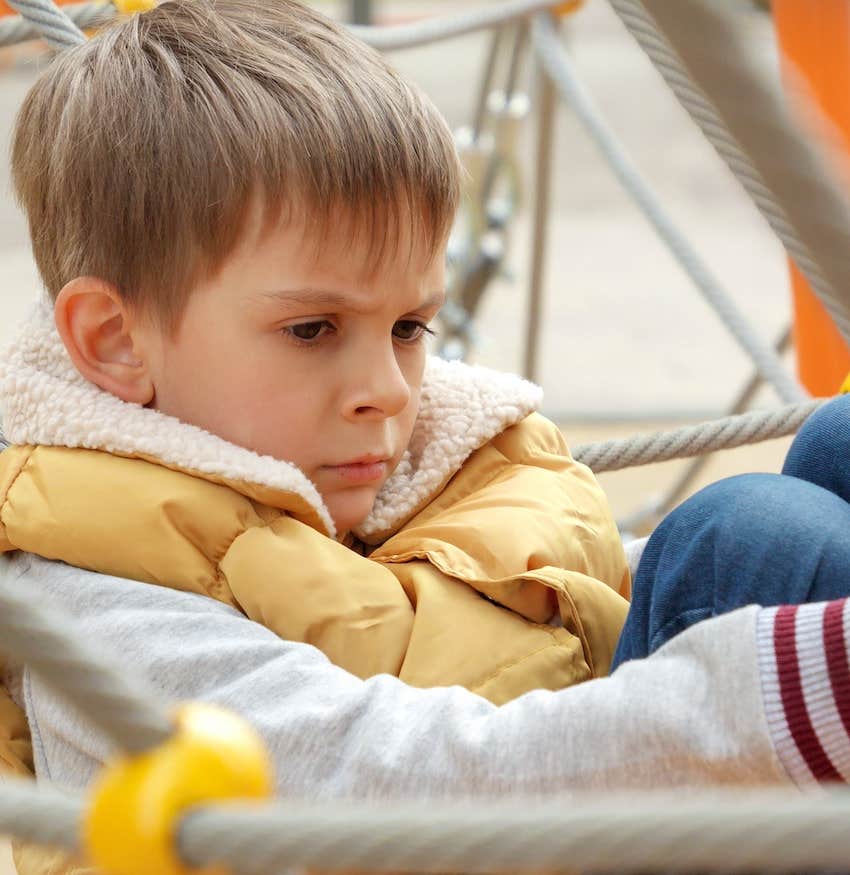If You Teach Your Kids These 4 Skills Now, They're Less Likely To Act Bratty In The Future
Brattiness comes from somewhere, which means it can be managed and even prevented.
 Odua Images | Canva
Odua Images | Canva Does your child think he knows better than adults, including you? Don't worry, most kids do this from time to time!
But when a child or teenager's behavior goes from normal limit-testing to outright defiance and even trouble-making, how can you reason with them or get them to listen? There are ways to parent a defiant kid, teaching them respect without crushing their spirit or their sense of independence.
In fact, the best way to keep your kid from being bratty or defiant is to nurture their independent thinking within reasonable confines, to listen and show them respect and to teach them social skills. In turn, they are more likely to show respect toward others.
Teaching kids these four skills helps prevent brattiness and defiance in the future
1. How to make good decisions on their own
Using open-ended questions and reflective listening not only helps eliminate a ton of unnecessary friction with your kids, it also gives them a social skill that can prevent behavior problems in the future.
Rather than telling your child, "You need to stop arguing with your teachers", ask, "How do you think your teacher feels when you speak out of turn? What impression did you mean to make? What made what you had to say so important? How can you say this without seeming to argue?"
This allows your child to consider others’ thoughts and how their behavior can negatively or positively affect others.
Open-ended questions use the words who, what, when, where, how, and why. It can be beneficial to have your child look at your face and interpret what you're currently feeling.
"Stop trying to convince your child or teen of anything. Rather, accept where you both are in a given moment," psychotherapist Sharon Saline advised. "Remember, their listening stopped when they became activated and they want to be seen and heard by you. Acknowledge what they're saying with reflective listening.
On an ongoing basis — like in a moving car — and on the spot when the child is rude or dismissive, ask them open-ended questions that allow them to reflect on their actions and how they might make other people feel. Reflect what you're hearing and make sure you're hearing them correctly, and you'll develop a significantly more respectful relationship.
2. How to be a social observer
 Kyrylo Ryzhov via Shutterstock
Kyrylo Ryzhov via Shutterstock
To help your child stop arguing and build awareness, introduce the concept of the social spy. Social spies observe people in different settings and then record their observations about social cues including vocal volume, tone, eye contact, physical presence, interrupting, arguing, etc.
Here's how it works: Go to a public place, hotel lobby, bookstore, mall. Watch and notice the social cues and identify what unspoken rules the environment dictates. Discuss both of your observations and create an image of positive social behavior to navigate towards.
3. How to be polite even when bored or annoyed
Your child may dislike being "bored" and may act out in the classroom, leading to outbursts or just checking out altogether, as examined by an article in the Scandinavian Journal of Educational Research. Some will provoke and argue with the teacher to be funny or get a reaction from friends.
Rather than lecturing your child, ask them what happened in the specific situation. Start by saying, "I’ve noticed that you sometimes struggle to stop arguing with your teacher and I understand you don’t mean to be disrespectful."
Remain neutral and calmly discuss why pretending to be polite is necessary. Talk to them about things that do not interest them, and this dilemma of being polite.
Rather than just telling them, work together to discuss the benefits of being polite and figure out polite ways to react when a conversation feels boring or when they're too tired to participate in the conversation. Be sure to also work on tone to avoid sounding dismissive and argumentative.
4. How to read a room
In each environment, there are expectations and unspoken rules. To present the best face to the world, you have to decipher those expectations by reading the room.
Before entering a room or gathering, help your child pause, observe, and tune into the participants, energy, and discussion before jumping in. You can even build your child's social skills at home!
Children who can’t stop arguing and, therefore, tend to dominate conversations, can learn to be able to interpret and consider the feelings of others.
Parents who see their child's defiant social behavior are often baffled. Their child will get on their hind legs and speak back to authority figures. The parent insists this is not how the child was raised and their siblings don’t behave in this manner.
Yet, in another email, their child’s teacher details another troubled interaction. He had, yet, another outburst from your child, who insisted they know better and was unable to self-soothe or settle down.
Parent-teacher meetings are held, with and without the child, as well as numerous discussions at home. But, nothing changes. "I wasn’t talking out of turn. My teacher just doesn’t like me."
Try as you might, your child remains oblivious to their behavior. In their mind, they were just stating facts. When the teacher asked them to settle down, they felt that their opinion would be ignored.
Considering your child’s perspective doesn’t take into account stepping into their teacher's shoes and understanding how the teacher feels. It’s about perspective. Your child can’t understand how they come across.
Studies in Developmental Science suggested a perspective into our behavior and choices, allowing us to recognize social cues. Their intentions are good, but they don’t know how to tune in and "walk in the other person’s shoes."
It’s a journey, and consistency is the key. Parents should find comfort in knowing all children benefit from patient and nurturing parents.
Caroline Maguire, ACCG, PCC, M.Ed. is a personal coach who works with children with ADHD and the families who support them.

